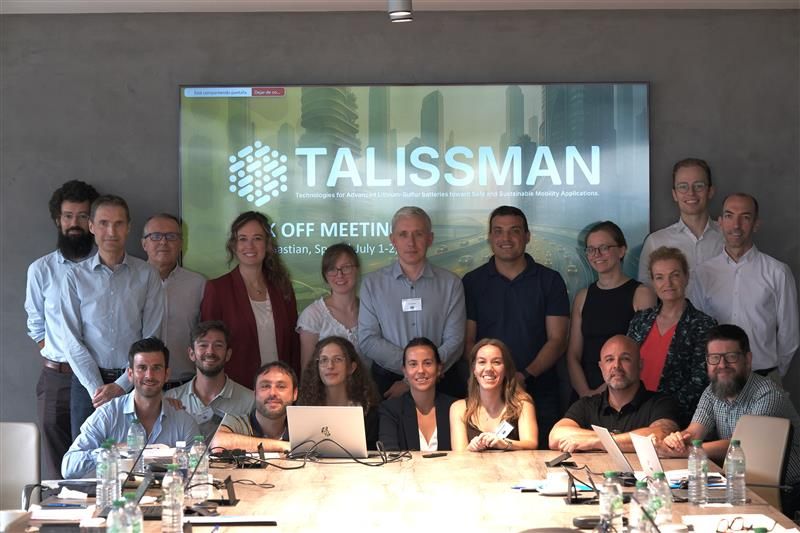“Lithium-sulphur batteries offer higher energy density and use lighter materials”
Europe is promoting advanced lithium-sulphur batteries for safer and more sustainable mobility
Over the next 48 months, a consortium of nine partners from Spain, France, Germany and Italy are going to work on the design, validation and scale-up of two fifth-generation battery concepts for electrified mobility: hybrid quasi-solid gelled concept (Gen2027) and all-solid-state sulphide approach (Gen2030).
Both developments focus on demanding sectors such as heavy transport, electric aviation and automotive with the aim of improving the energy density, safety, sustainability and economic competitiveness of future storage solutions.
TECNALIA develops innovative approaches – from solid-state electrolyte design to 3D electrodes, which could be a breakthrough and accelerate the technology to market.
Spanish partners
- CIDETEC: coordinator of the project, it will be responsible for assessing new advanced sulphur cathode structures with the aim of improving the durability of the system. It will also carry out the scale-up of functional cell prototypes to validate the developed technology in a pre-industrial environment.
-
AIRBUS Operations: it will establish the technical requirements for aeronautical applications and assess the feasibility of incorporating these batteries into efficient electric aircraft.
-
TECNALIA: it will be in charge of developing anodes based on 3D carbon structures using buckypaper as a support for lithium, including the improvement of its lithophilicity. Scalable anode manufacturing will facilitate the development of functional prototypes.
-
SUSTAINABLE INNOVATIONS: it will be in charge of communication, dissemination and exploitation of results, in order to maximise the long-term impact of the project.
Lithium-sulphur batteries: the alternative to existing lithium-ion batteries
Lithium-sulphur batteries are one of the most promising technologies compared to existing lithium-ion batteries because they offer higher energy density and use lighter, more abundant and environmentally friendly materials. The European Union sees them as key to moving towards industrial autonomy, reducing dependence on critical raw materials and meeting the objectives of the European Green Deal and the Batt4EUinitiative.
The TALISSMAN project is part of this strategic context as a solid commitment to a safer, more sustainable and competitive mobility of the future.

